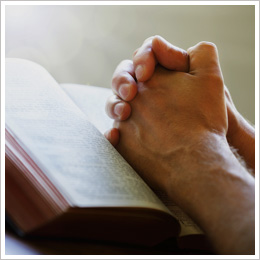Athet Pyan Shinthaw Paulu’s story – he saw Buddha in hell.
Back From the Dead
By Athet Pyan Shinthaw Paulu
The Remarkable Testimony of a Buddhist monk in Myanmar (Burma) who came back to life a changed man!
Introduction
The story that follows is simply a translation of a taped testimony from a man with a life-changing story. It is not an interview or a biography, but simply the words from the man himself. Different people react in different ways when they hear this story. Some are inspired, some skeptical, a few will mock and ridicule, while some others have even been filled with rage and anger, convinced these words are the ravings of a mad man or an elaborate deception. Some Christians have opposed the story simply be- cause the radical and miraculous events described herein do not fit their feeble image of an Almighty God.
My Early Years:
Hello! My name is Athet Pyan Shinthaw Paulu. I am from the country of Myanmar. I would like to share with you my testimony of what happened to me, but first I would like to give some brief background in- formation from my life growing up. I was born in 1958 in the town of Bogale, on the Irrawaddy Delta area of southern Myanmar [formerly Burma]. My parents, who were devout Buddhists like most people in Myanmar, named me Thitpin [which means ‘tree’ in English]. Our lives were very simple where I grew up. At the age of 13 I left school and started working on a fishing boat. We caught fish and sometimes also shrimp from the numerous rivers and streams in the Irrawaddy area. At the age of 16 I became the leader of the boat. At this time I lived in Upper Mainmahlagyon Island [Mainmahlagyon means ‘Beautiful Woman Island’ in English], just north of Bogale where I was born. This place is about 100 miles south- west of Yangon [Rangoon], our nation’s capital city.
One day, when I was 17, we caught a large number of fish in our nets. Because of the many fish, a large crocodile was attracted to us. It followed our boat and tried to attack us. We were terrified so we frantically rowed our boats toward the riverbank as fast as we could. The crocodile followed us and smashed our boat with its tail. Although no one died in this incident, the attack greatly affected my life. I no longer wanted to fish. Our small boat sank because of the crocodile attack. We had to go home to our village that night on a passenger boat. Not long after, my father’s employers transferred my father to Yangon City [formerly spelt Rangoon]. At the age of 18 I was sent to a Buddhist monastery to be a novice monk. Most parents in Myanmar try to send their son into a Buddhist monastery, at least for a time, as it is considered a great honor to have a son serve in this way. We have been observing this custom for many hundreds of years.
A Zealous Disciple of Buddha:
When I turned 19 years and 3 months old (in 1977), I became a normal monk. The senior monk at my monastery gave me a new Buddhist name, which is the custom in our country. I was now called U Nata Pannita Ashinthuriya. When we become a monk we no longer use the name given to us at birth by our parents. The name of the monastery I lived at is called Mandalay Kyaikasan Kyaing. The senior monk’s name was called U Zadila Kyar Ni Kan Sayadaw [U Zadila is his title]. He was the most famous Buddhist monk in all of Myanmar at the time. Everyone knew who he was. He was widely honored by the people and respected as a great teacher. I say he “was” because in 1983 he suddenly died when he was in- volved in a fatal car accident. His death shocked everyone. At the time I had been a monk for six years.
I tried hard to be the best monk I could and to follow all the precepts of Buddhism. At one stage I moved to a cemetery where I lived and meditated continually. Some monks who really want to know the truths of Buddha do things like I did. Some move deep into the forests where they live a life of self-denial and poverty. I sought to deny my selfish thoughts and desires, to escape from sickness and suffering and to break free from the cycle of this world. At the cemetery I was not afraid of ghosts. I tried to attain such inner peace and self-realization that even when a mosquito landed on my arm I would let it bite me in- stead of brushing it off!
For years I strived to be the best monk I could and not to harm any living being. I studied the holy Bud- dhist teachings just like all my forefathers had done before me. My life proceeded as a monk until I got very, very sick. I was in Mandalay at the time and had to be taken to the hospital for treatment. The doc- tors did some tests on me and told me I had both Yellow Fever and malaria at the same time! After about one month in the hospital I was getting worse. The doctors told me there was no chance for me to recover and discharged me to make arrangements to die. This is a brief description of my past. I would now like to tell you some of the remarkable things that happened to me after this time…
A Vision that Changed My Life Forever;
After I was discharged from the hospital I went back to the monastery where other monks cared for me. I grew weaker and weaker and was lapsing into unconsciousness. I learned later that I actually died for three days. My body decayed and stunk of death, and my heart stopped beating. My body was prepared for cremation and was put through traditional Buddhist purification rites.
Although I faded away in my body I remember my mind and spirit were fully alert. I was in a very, very powerful storm. A tremendous wind flattened the whole landscape until there were no trees or anything else standing, just a flat plain. I walked very fast along this plain for some time. There were no other people anywhere, I was all alone. After some time I crossed a river. On the other side of the river I saw a terrible, terrible lake of fire. In Buddhism we do not have a concept of a place like this. At first I was confused and didn’t know it was hell until I saw Yama, the king of hell [Yama is the name ascribed to the King of Hell in numerous cultures throughout Asia]. His face looked like the face of a lion, his body was like a lion, but his legs were like a naga [serpent spirit]. He had a number of horns on his head. His face was very fierce, and I was extremely afraid. Trembling, I asked him his name. He replied, “I am the king of hell, the Destroyer.”
The terrible, terrible lake of fire;
The king of hell told me to look into the lake of fire. I looked and I saw the saffron colored robes that Buddhist monks wear in Myanmar. I looked closer and saw the shaven head of a man. When I looked at the man’s face I saw it was U Zadila Kyar Ni Kan Sayadaw [the famous monk who had died in a car accident in 1983]. I asked the king of hell why my former leader was confined to this lake of torment. I said, “Why is he in this lake of fire? He was a very good teacher. He even had a teaching tape called ‘Are You a Man or a Dog?’ which had helped thousands of people understand that their worth as humans is far greater than the animals.” The king of hell replied, “Yes, he was a good teacher but he did not be- lieve in Jesus Christ. That’s why he is in hell.” (footnote 10.)
I was told to look at another person who was in the fire. I saw a man with very long hair wrapped on the left hand side of his head. He was also wearing a robe. I asked the king of hell, “Who is this man?” He replied, “This is the one you worship: Gautama [Buddha].” I was very disturbed to see Gautama in hell. I protested, “Gautama had good ethnics and good moral character, why is he suffering in this lake of fire?” The king of hell answered me, “It doesn’t matter how good he was. He is in this place because he did not believe in the Eternal God.”
I then saw another man who looked like he was wearing a soldier’s uniform. He had a large wound on his chest. I asked, “Who is this man?” The king of hell said, “This is Aung San, the revolutionary leader of Myanmar.” I was told, “Aung San is here because he persecuted and killed Christians, but mostly be- cause he didn’t believe in Jesus Christ.” In Myanmar the people have a common saying, “Soldiers never die, they live on.” I was told that the legions of hell have a saying “Soldiers never die, but they go to hell forever.”
I looked and saw another man in the lake of fire. He was a very tall man and he was dressed in military armor. He was also holding a sword and a shield. This man had a wound on his forehead. This man was taller than any person I have ever seen. He was six times the length between a man’s elbow and the tips of his fingers when he stretches his arm out straight, plus one span of a man’s fingers when he spreads out his hand. The king of hell said, “This man’s name is Goliath. He is in hell because he blas- phemed the Eternal God and His servant David.” I was confused because I didn’t know who either Go- liath or David were. The king of hell said, “Goliath is recorded in the Christian Bible. You don’t know him now, but when you become a Christian you will know who he is.” (footnote 1.)
I was then taken to a place where I saw both rich and poor people preparing to eat their evening meals. I asked, “Who cooked the food for these people?” The king of hell replied, “The poor have to prepare their own food, but the rich people get others to cook for them.” When the food had been prepared for the rich people they sat down to eat. As soon as they started a thick smoke came up. The rich people ate as fast as they could to ease their consciences. They were struggling to breath because of the smoke. They had to eat fast because they were fearful of losing their money. Their money is their god. Another king of hell then came to me. I also saw a being whose job is to stoke the fires beneath the lake of fire, to keep it hot. This being asked me, “Are you going into the lake of fire too?” I replied, “No! I am only here to observe!” The appearance of this creature stoking the fire was very terrifying. He had ten horns on his head and a spear in his hand that had seven sharp blades coming from the end. (footnote 2.)
The creature told me, “You are right. You came here just to observe. I cannot find your name here.” He said, “You must now go back the way you came.” He pointed me toward the desolate plain that I had first walked along before I came to the lake of fire.
The Road of Decision;
I walked a long time, until I was bleeding. I was hot and in great pain. Finally, after walking for about three hours I came to a wide road. I walked along this road for some time until I came to a fork. One road, going off to the left, was wide. A smaller road went off to the right hand side. There was a signpost at the fork saying that the road to the left was for those who do not believe in the Lord Jesus Christ. The smaller road to the right was for believers in Jesus. (footnote 3.) I was interested to see where the larger road led so I started down it. There were two men walking about 300 yards ahead of me. I tried to catch up with them so I could walk with them but no matter how hard I tried I couldn’t catch them up, so I turned around and went back to the fork in the road. I continued to watch these two men as they walked down the road away from me. When they reached the end of the road they were suddenly stabbed. These two men cried out in great pain! I also cried out when I saw what happened to them! I realized the bigger road ended in great danger for those who traveled down it. (footnote 4.)
Looking into Heaven
I started walking down the believers’ road instead. After traveling for about one hour the surface of the road turned to pure gold. It was so pure that when I looked down I could see my own reflection perfectly. (footnote 5.) I then saw a man standing in front of me. He was wearing a white robe. (footnote 6.) I also heard beautiful singing. Oh, it was so beautiful and pure! It was much better and more meaningful than
the worship we have in churches here on the earth. The man in the white robe asked me to walk with him. I asked him, “What is your name?” but he did not answer. After I asked his name six times the man answered, “I am the one who holds the key to heaven.
Heaven is a very, very beautiful place. You cannot go there now but if you follow Jesus Christ you can go there after your life has finished on the earth.” The man’s name was Peter. (footnote 7.) Peter then asked me to sit down and he showed me a place to the north. Peter said, “Look to the north and see God create man.” I saw the Eternal God from a distance. God spoke to an angel, “Let us make man.” The angel pleaded with God and said, “Please don’t make man. He will do wrong and will grieve you.” [In Burmese literally: “He will make you lose face.”]. But God created a man named anyway. God blew on the man and the man came to life. He gave him the name “Adam”. (footnote 8.) [Note: Buddhists do not believe in the Creation of the world or of man, so this experience had a significant impact on the monk].
Sent Back with a New Name;
Then Peter said, “Now get up and go back to where you came from. Speak to the people who worship Buddha and who worship idols. Tell them they must go to hell if they don’t change. Those who build temples and idols will also have to go to hell. Those who give offerings to the monks to earn merit for themselves with go to hell. All those who pray to the monks and call them ‘Pra’ [respectful title for monks] will go to hell. Those who chant and ‘give life’ to idols will go to hell. All those who don’t believe in Jesus Christ will go to hell.” (footnote 9 & 10.)
Peter told me to go back to the earth and testify about the things I had seen. He also said, “You must speak in your new name. From now on you are to be called Athet Pyan Shinthaw Paulu [“Paul who Came Back to Life.”]. I didn’t want to go back. I wanted to go to heaven. Angels opened a book. First they looked for my childhood name (Thitpin) in the book, but they could not find it. They then looked for the name I had been given when he entered the Buddhist monk hood (U Nata Pannita Ashinthuriya) but it wasn’t written in the book either. Then Peter said, “Your name is not written here, you must return and testify about Jesus to the Buddhist people.”
I walked back along the gold road. Again I heard beautiful singing, the kind of which I have never heard before or since. Peter walked with me until the time I returned to the earth. He showed me a ladder that reached down from the heaven to the sky. The ladder didn’t reach to the earth, but stopped in mid-air. On the ladder I saw many angels, some going up to heaven and some going down the ladder. They were very busy. I asked Peter, “Who are they?” Peter answered, “They are messengers of God. They are reporting to heaven the names of all those who believe in Jesus Christ and the names of those who don’t believe.” Peter then told me it was time to go back.
It is a Ghost?
The next thing I was aware of was the sound of weeping. I heard my own mother cry out, “My son, why did you leave us now?” I also heard many other people weeping. I realized I was lying in a box. I started to move. My mother and father started shouting, “He is alive! He is alive!” Other people who were farther away did not believe my parents. I then placed my hands on the sides of the box and sat upright. Many people were struck with terror. They cried out, “It is a ghost!” and ran away as fast as their legs could carry them.
Those who remained were speechless and trembling. I noticed I was sitting in smelly liquid and body fluids, enough to fill about three and a half cups. This was liquid that had come out of my stomach and my insides while my body was lying in the coffin. This is why people knew I had indeed been dead. Inside the coffin there was a type of plastic sheet fixed to the wood. This sheet is placed there to retain
a corpse’s liquids, because many dead bodies release much fluid like mine did. I learned later that I was just moments away from being cremated in the flames. In Myanmar people are placed in a coffin, the lid is then nailed shut, and the whole coffin is burned. When I came back to life my mother and father were being allowed to look at my body for the very last time. Moments later the lid of my coffin would have been nailed shut and I would have been cremated!
I immediately started to explain the things I had seen and heard. People were astonished. I told them about the men I had seen in the lake of fire, and told them that only the Christians know the truth, that our forefathers and us have been deceived for thousands of years! I told them everything we believe is a lie. The people were astonished because they knew what kind of a monk I had been and how zealous I had been for the teachings of Buddha.
In Myanmar when a person dies their name and age is written on the side of the coffin. When a monk dies, the monk’s name, age and the number of years he has served as a monk are written on the side of the coffin. I had already been recorded as dead but as you can see, now I am alive!
Epilogue
Since ‘Paul who came back to life’ experienced the above story he has remained a faithful witness to the Lord Jesus Christ. Burmese pastors have told us that he had led hundreds of other monks to faith in Christ. His testimony is obviously very uncompromising. Because of that, his message has offended many people who cannot accept there is only one Way to Heaven, the Lord Jesus Christ. (footnote 10.)
Despite great opposition, his experiences were so real to him that he has not wavered. After many years in the Buddhist monk hood, as a strict follower of Buddhist teachings, he immediately proclaimed the Gospel of Christ following his resurrection and exhorted other monks to forsake all false gods and follow Jesus Christ with all their hearts. Before the time of his sickness and death he had no exposure to Chris- tianity at all. Everything he learned during those three days in the grave was new to his mind.
In a bid to get his message out to as many people as possible, this modern-day Lazarus began distrib- uting audio and video cassette tapes with his story on them. The police and Buddhist authorities in Myanmar have done their utmost to gather these tapes up and destroy them. The testimony you have just read has been translated from one of those cassette tapes. We are told it is now quite dangerous for citizens of Myanmar to be in possession of these tapes.
His fearless testimony has landed him in prison at least once, where the authorities failed in their bid to silence him. Upon his release he continued to testify of the things he saw and heard. His current where- abouts are uncertain. One Burmese informant told us he is prison and may have been killed, while an- other informant was told he is now released from prison and is continuing his ministry.
Footnotes
[1] The true account of David and Goliath is recorded in the Christians’ holy book, the Holy Bible, in 1 Samuel chapter 17. read on
[2] Revelation chapter 12, vs 3. read on
[3] Matthew chapter 25, vs 31-46. read on
[4] Matthew chapter 7, vs 13-14. read on
[5] Revelation 21, vs 21. read on
[6] See Revelation 3:5, 3:18, 4:4, 7:9, 7:14, 19:8, 19:14. read on
[7] Matthew 16:18-19. read on
[8] Genesis 1:26-27, 2:7, 5:1-2. read on
[9] Revelation 20:14-15, 21:8. read on
[10] John 14:6. read on
ALPHA & OMEGA ALMIGHTYWIND RUACH HA KODESH WILDFIRE LAST CHANCE MINISTRY
www.almightywind.com Please go to the other if one is off line.
We are Sabbath-Keepers, Not Seventh-Day Adventists Click Here For More Info
Mailing and Email Addresses
By Faith Enoch was translated that he should not see death: and was not found, because YAHUVEH had translated him: for before his translation he had this testimony, that he pleased YAHUVEH. Hebrews 11:5

 The next time you uncap a bottle of water or grab a drink from the tap, remember that one in eight people in the world (that’s 884 million people) lack access to clean water supplies. Millions of women around the world spend several hours a day collecting water. When you take a five-minute shower, you use more water than a typical person in a developing country uses in a whole day.
The next time you uncap a bottle of water or grab a drink from the tap, remember that one in eight people in the world (that’s 884 million people) lack access to clean water supplies. Millions of women around the world spend several hours a day collecting water. When you take a five-minute shower, you use more water than a typical person in a developing country uses in a whole day. The true secret to freedom from the fear of poverty is faithfulness to God’s work. That’s what brings abundant prosperity that will never cease, for “A faithful man shall abound with blessings” (Proverbs 28:20).
The true secret to freedom from the fear of poverty is faithfulness to God’s work. That’s what brings abundant prosperity that will never cease, for “A faithful man shall abound with blessings” (Proverbs 28:20).

 As an entrepreneur for over thirty years I am well aware of the fact that the businessman is looking for a return on everything he does; whether it be a return on time, labour, resources or money. That is just the way a businessman thinks; it is the way God made him.
As an entrepreneur for over thirty years I am well aware of the fact that the businessman is looking for a return on everything he does; whether it be a return on time, labour, resources or money. That is just the way a businessman thinks; it is the way God made him.